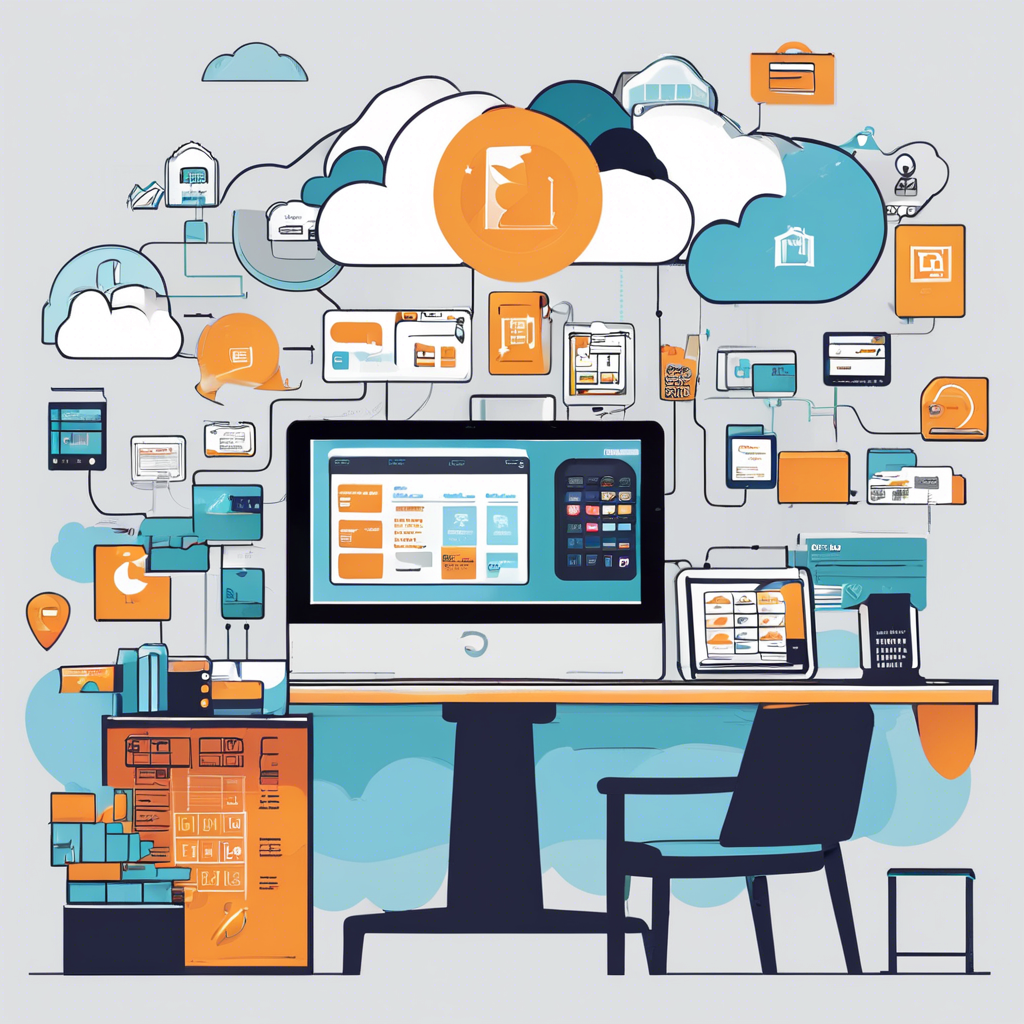Cloud-based POS systems have revolutionized the way businesses operate in the digital age. These systems, also known as Point of Sale systems, leverage cloud technology to streamline transactions, manage inventory, and analyze sales data in real-time. In this article, we will explore the key features and benefits of cloud-based POS systems, as well as their impact on the retail and hospitality industries.
One of the primary advantages of cloud-based POS systems is their scalability. Unlike traditional POS systems that require costly hardware upgrades to accommodate growth, cloud-based systems can easily scale up or down based on business needs. This flexibility allows businesses to adapt to changing market conditions and expand their operations without significant investment.
In addition to scalability, cloud-based POS systems offer enhanced mobility. With cloud technology, businesses can access their POS system from any device with an internet connection, enabling them to process transactions on the go or manage their operations remotely. This level of mobility is particularly beneficial for businesses with multiple locations or mobile operations.
Another key feature of cloud-based POS systems is their real-time reporting capabilities. By leveraging cloud technology, businesses can access up-to-date sales data, inventory levels, and customer insights at any time. This real-time visibility enables businesses to make informed decisions quickly and respond to market trends effectively.
Moreover, cloud-based POS systems enhance data security. Unlike traditional POS systems that store data locally on a physical server, cloud-based systems store data in secure off-site servers with advanced encryption protocols. This reduces the risk of data loss or theft and ensures that sensitive customer information is protected.
Furthermore, cloud-based POS systems are cost-effective for businesses of all sizes. With a cloud-based system, businesses can eliminate the need for expensive hardware installations and maintenance costs associated with traditional POS systems. This cost savings can be significant, especially for small businesses looking to optimize their operations.
Additionally, cloud-based POS systems offer seamless integration with other business tools and applications. From accounting software to customer relationship management systems, cloud-based POS systems can easily integrate with third-party applications to streamline operations and improve efficiency.
Moreover, cloud-based POS systems provide automatic software updates and backups. With cloud technology, businesses no longer need to worry about manually updating their POS software or backing up data. Cloud-based systems automatically update and back up data, ensuring that businesses always have access to the latest features and a secure data backup.
Furthermore, cloud-based POS systems offer advanced analytics and reporting capabilities. By analyzing sales data, customer trends, and inventory levels, businesses can gain valuable insights into their operations and make data-driven decisions to optimize performance and drive growth.
In addition to analytics, cloud-based POS systems support omnichannel sales strategies. With cloud technology, businesses can seamlessly integrate online and offline sales channels, allowing customers to shop across multiple platforms while maintaining a consistent shopping experience.
Moreover, cloud-based POS systems improve customer experience. With features such as mobile payments, loyalty programs, and personalized promotions, businesses can enhance customer engagement and build brand loyalty through a seamless and personalized shopping experience.
Additionally, cloud-based POS systems enhance inventory management. By tracking inventory levels in real-time and generating automated reorder alerts, businesses can optimize their stock levels, reduce out-of-stock situations, and improve overall inventory efficiency.
Furthermore, cloud-based POS systems facilitate employee management. With features such as time tracking, performance analytics, and role-based access controls, businesses can efficiently manage their workforce and track employee performance to drive productivity and accountability.
Moreover, cloud-based POS systems offer customizable interfaces and workflows. Businesses can tailor their POS system to meet their specific needs and preferences, from customizing menu layouts to configuring reporting dashboards, ensuring a personalized user experience for both employees and customers.
Additionally, cloud-based POS systems enhance compliance and security. With built-in compliance features such as PCI DSS certification and GDPR compliance, businesses can ensure that their POS system meets industry standards for data security and privacy.
Furthermore, cloud-based POS systems support remote management capabilities. With cloud technology, businesses can manage their POS system from anywhere, whether it’s monitoring sales performance, updating menu items, or tracking inventory levels, providing flexibility and convenience for business owners and managers.
Moreover, cloud-based POS systems offer seamless hardware integrations. From barcode scanners to receipt printers, cloud-based systems can easily integrate with a wide range of POS hardware devices to enhance functionality and streamline operations.
Additionally, cloud-based POS systems provide 24/7 customer support. With dedicated customer service teams and online resources, businesses can receive prompt assistance and guidance whenever they encounter issues with their POS system, ensuring smooth operations and minimal downtime.
Furthermore, cloud-based POS systems foster innovation and adaptability. With regular software updates and access to new features and integrations, businesses can stay ahead of the curve and adapt to changing market trends, ensuring that their POS system remains relevant and competitive.
In conclusion, cloud-based POS systems offer a wide range of benefits for businesses looking to streamline operations, enhance customer experience, and drive growth. By leveraging cloud technology, businesses can access advanced features, real-time data insights, and seamless integrations that empower them to succeed in today’s competitive marketplace.
